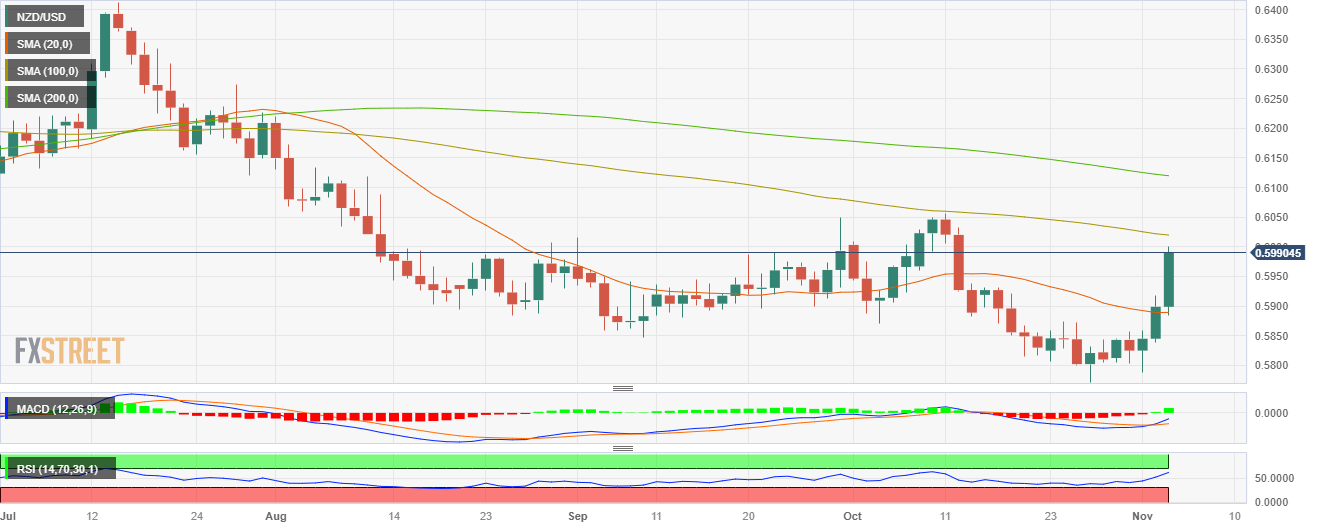NZD/USD rallies to multi-week highs after soft US NFPs
- NZD/USD rose by more than 1% to 0.5990, its highest since mid October.
- The US reported weak NFPs, which triggered a sharp decline in US yields and hawkish bets on the Fed.
- Eyes on inflation figures from the US from October.
On Friday, the NZD/USD rallied, driven by the US Dollar facing notable selling pressure after the release of the soft labour market, which triggered a decline in US Treasury yields and hawkish bets on the Federal Reserve (Fed) for the December meeting. On the Kiwi’s side, no relevant data was released.
The latest data from the US Bureau of Labor Statistics delivered a blow to market expectations, with the Nonfarm Payrolls for October falling short of projections. The report revealed an addition of 150,000 jobs in the US economy, trailing the anticipated 180,000 and showing a slowdown from the revised prior figure of 297,000. Additionally, the Unemployment Rate for the same period rose to 3.9%, surpassing the projected 3.8%.
Moreover, the Average Hourly Earnings for October exhibited a sluggish monthly growth of 0.2% but managed to climb to 4.1% YoY, surpassing the expected 4% and outpacing the previous figure of 4.3%.
Simultaneously, the US Treasury yields continue to decline, with the 2-year rate hitting its lowest mark since early September at 4.83%. Correspondingly, the longer-term 5 and 10-year rates retreated to approximately 4.50% and 4.54%. Regarding the December meeting of the Fed, the CME FedWatch Tool shows that the probability of a 25 basis points hike in declined to a mere 9%, exacerbating the selling pressure on the Greenback.
On November 14th, the US will report inflation rate figures from October, which investors will closely watch to continue modelling their expectations.
NZD/USD Levels to watch
Based on the daily chart, NZD/USD maintains a neutral to bullish technical perspective, indicating that the bulls are making strides in regaining control and gathering significant momentum. The Relative Strength Index (RSI) maintains a positive slope above its midline, while the Moving Average Convergence (MACD) histogram exhibits bigger green bars.
However, despite being above the 20-day Simple Moving Average (SMA), the pair is still below the 100 and 200-day, indicating that on the broader outlook, the bears are in command.
Support levels: 0.5930, 0.5910, 0.5900.
Resistance levels: 0.6000, 0.6020 (100-day SMA), 0.6050.
NZD/USD Daily Chart
